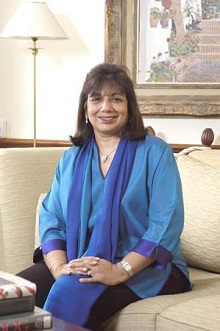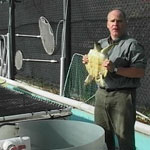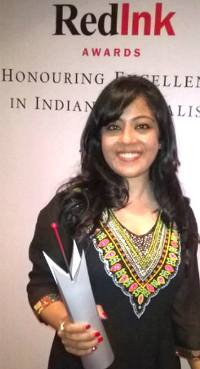The number of women pursuing careers in science has increased, slowly but surely. However, a disproportionately low number of women are at senior scientific and leadership positions. Women are seen more as scientific workers and teachers rather than scientists.
The importance of educating the girl child cannot be underplayed. Girls must be encouraged at the primary, secondary and graduate levels to take up further studies in science. Developing the language of positivity in the way women are represented in science textbooks can go a long way towards motivating girls towards ambitious careers in science. Outreach programmes such as science camps can be an excellent learning platform for young children to learn about future education opportunities, scholarship and funding options, as well as enabling interactions with women scientists to offer young women with role models.
2. You had opted for an unconventional career starting from studying Malting and Brewing in Melbourne University and then starting your own biotechnology business. What inspired you to get into this sector? Were there many women in this field when you had started?
I wanted to become a doctor but opted for Bachelor of Science in Zoology. After graduating from Mount Carmel College, Bangalore, I took my father's advice and decided to pursue brewing as a subject. I left for Melbourne with an offer from Ballarat College, Melbourne University to qualify as a Master Brewer. I topped the class but returned to India to find there were no jobs for women in the brewing industry.
At this stage, I looked at various other options but found none that appealed to me. I found a job in Scotland with Moray Firth Maltings and was getting ready to leave when a chance meeting with Les Auchincloss changed the course of action. He was from an Irish company called Biocon Biochemicals Ltd and was looking for an Indian partner to start something in India. He had heard about me from my former professors in Australia and was insistent that I take up his offer.
Though I didn't think I was entirely suited to take on such a project and inspite of my protests to Auchincloss (I told him I was a woman, not a rich one, had never run a business enterprise before), in November 1978 Biocon India was formed. From then on there was no looking back and Biocon today is a twenty-seven year old success story.
3. A billion-dollar company and Asia's largest biopharma concern which started in the garage of your rented home in Bangalore and a seed capital of Rs10, 000. Now when you look back, how would you describe the journey? Please tell us how was it when you had started - what kind of hurdles did you have to face?
Ans. My journey of building Biocon has been about exploration, experimentation and learning. Trying out new ideas and overcoming unforeseen challenges are part and parcel of developing a business. I believe that one benefits from the learning and more importantly, the improvement that follows.
During my growing up years, I was inspired by my father who was a well-known name in the brewing industry. Encouraged by him, I decided to take up brewing as a profession and went to Australia to pursue my Brew Master's degree from Australia's Ballarat University. However, when I came back to India, I realized there was no place for a woman brewer in India.
I started looking for alternates when I met my Irish collaborator who had founded a biotech company in Ireland. He invited me to be his business partner and start a Biotechnology company in India. I was reluctant at first because I had no business experience nor did I have the investment capital but he persuaded me to give it a try. That is how the idea of Biocon in India germinated. I went to Ireland for six months to learn the business and came back to set up Biocon in Bangalore.
The beginning of any entrepreneurial endeavour is always the most challenging, as we take the first steps on the journey, treading on unfamiliar territory. However, facing these challenges with ingenuity and determination to blaze a trail is an infinitely rewarding experience.
When I started Biocon in 1978, I was a pioneer - not many people in India had heard of biotechnology, leave alone envisage it as a business. The obstacles I needed to navigate in the first two years of building Biocon were manifold - ranging from infrastructural hurdles to issues related to my credibility as a businessperson. I refused to let them intimidate me and decided to chart my own path.
I was trying to sow the seeds of a biotechnology enterprise in India - which was, an underdeveloped economy, where business was bound by red tape, gagged by sub-optimal infrastructure, and held hostage by a precarious foreign debt situation.
With no access to venture capital, money was scarce and high-cost debt-based capital was all I had. What I required to start my business was collateral security, a demonstrated business track record, and a well-understood business model. I had neither of these: I was a 25-year-old entrepreneur, a woman at that, with no business experience, and no collateral to offer. To make matters worse, I was promoting a high-risk, unknown business based on a relatively unknown science. It took me three months to obtain a Rs 5-lakh credit line in 1979 which saw me knock on the doors of five banks before one brave banker decided to fund me.
Beyond the financial challenges was the business of biotechnology itself. Enzyme extraction and production, the biotechnology with which I started, was a new concept and there was skepticism about the commercial viability of eco-friendly but expensive enzymes to replace cheap chemical processes. My challenge was to get the market to accept biotechnology and change old practices.
Enzyme manufacturing for industrial application involved sophisticated fermentation which demanded uninterrupted power supply and precision process control. This was not something I could manage to do in India given the unreliable power supply situation and the limited resources I had.
However, I went ahead with the idea and succeeded in building a green business model and provided a boost to environmental sustainability by doing away with chemical pollution in the process. I opted for specialty low-volume, high-value enzymes for the food and beverages industry as I felt that this was more doable for a small entrepreneur just starting out in business.
Several factors have contributed to Biocon's growth. One was my single-minded determination to see the venture succeed. I have never been one to give up easily; so, when I faced the initial hiccups that any start-up in India faced during the pre-liberalization period, I simply became more determined to succeed.
4. How did you manage to acquire your first loan? By when did people start reposing faith in your work?
As an entrepreneur, the early years were fraught with funding challenges. In the 1970s and 1980s business financing was risk averse. What counted was collateral security, a demonstrated business track record and a well understood business model. I did not have any of these elements: I was a 25-year-old start-up entrepreneur, a woman at that, with no business experience, no collateral security to offer and worse still, a high risk, unknown business based on biotechnology! It took me three months to obtain a Rs 5 lakh credit line in 1979 which saw me knock on the doors of 5 banks before a brave banker decided to take the risk and back me.
Ten years later, despite building a successful track record of being able to run a profitable biotechnology business, I was back to square one when I tried to raise a loan of Rs 1 crore to scale up our intently researched, home grown enzyme technology. The conventional lending institutions like Karnataka State Financial Corporation, Karnataka State Industrial Development Corporation, Industrial Development Bank of India were extremely reluctant to back such a high risk venture especially when most Indian companies relied on imported technologies.
It was a chance breakfast meeting with Vaghul, Chairman & Managing Director of ICICI that enabled me not only to raise the necessary finance but as Venture funding and not as a high interest bearing loan which was what I was seeking! Vaghul was keen on initiating the concept of venture funding first generation entrepreneurs through equity funding rather than debt financing. My enzyme business was an appropriate candidate and I can tell you that it was this that made the critical difference to the way I shaped the company. I failed to convince the others to back my risk but then succeeded in getting ICICI to share my risk! Getting people to buy into your vision is difficult but once they do, it enables you to sprout wings and fly.
5. What was the turning point in your career?
One of the biggest changes happened when Biocon went from being a producer of enzymes to a biopharmaceutical company. Manufacturing pharmaceuticals is completely different from manufacturing enzymes and there were numerous regulatory aspects we had to learn to bring pharma products into the market. However, we went about transforming ourselves with dogged determination and succeeded immensely. Our revenues moved from Rs 70 crore in 1998 to Rs 500 crore by 2004.
6. You are ranked as one of the richest Indian women. You are also the recipient of several prestigious awards. What makes you click as a successful businesswoman and entrepreneur?
Resourcefulness, the ability to face challenges head on, persistence, and lateral thinking are important factors leading to business success. It is equally important to be flexible about your business vision and let it evolve according to the demands of times. Such an evolutionary approach allows one to take advantage of opportunities and capabilities effectively.
7. You are known as a multi-faceted personality and an activist. Please tell us more about your association with philantrophic activities.
Philanthropy is definitely important but to me it is social responsibility towards sustainable development which is more essential. My endeavors are also targeted at making a difference to the lives of the underprivileged through Biocon Foundation. The Foundation does instill a sense of pride but more importantly, working directly with so many underserved communities has brought greater clarity about the responsibility we have, to ensure that every Indian can access their basic rights of healthcare and education.
Through Biocon Foundation, we aim to make a difference to the life of the communities we serve. Our integrated healthcare initiative spans preventive, primary, secondary and tertiary healthcare programs. In the area of education, our focus is on the quality of primary education.
8. You are now India's Biotech Queen. Don't you think you have achieved everything in life? What are your future plans?
The future promises many opportunities in the form of unmet medical needs. Biocon plans to focus on these so that innovative healthcare is affordable and can reach the poorest of the poor. Over the next few years, we plan to build on our cutting-edge capabilities and global credibility. We plan to enhance our manufacturing and marketing capabilities through joint ventures and tie-ups. Biocon is already a global biotechnology enterprise and my dream is to see both India and Biocon being ranked first in the biotech sector.
In the near future, we aim to make the sector a powerful intellectual wealth creator for India. With our low-cost competitive edge and focus on discovery-led research, we plan to significantly contribute towards India's global aspirations.







































